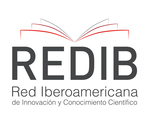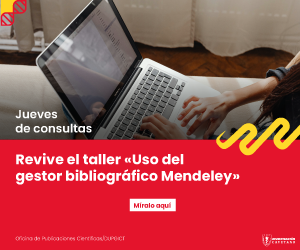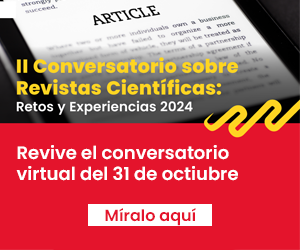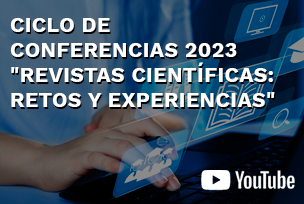Percepción sobre el profesionalismo médico en estudiantes del último año de medicina en una universidad peruana.
DOI:
https://doi.org/10.20453/rnp.v84i1.3931Palabras clave:
Profesionalismo médico, estudiantes de medicina, éticaResumen
Objetivo: Describir conceptos, experiencias y perspectivas que alumnos del último año de medicina en una universidad peruana tienen respecto al Profesionalismo Médico. Material y Métodos: Se aplicó una encuesta a alumnos que cursaban la rotación clínica final de su último (7º) año de estudios en la Facultad de Medicina de la Universidad Peruana Cayetano Heredia, durante el año 2015. Resultados: El porcentaje de respuestas fue 90,5%. Las tres respuestas más comunes fueron ética (51,2%), buena comunicación médico-paciente (43%) y conocimientos (41,9%). El 81,4 % de los estudiantes estuvo “de acuerdo” o “muy de acuerdo” con el hecho de que profesionalismo puede ser aprendido y enseñado. El contacto con modelos positivos del personal docente de la Facultad (4,26/5,00) fue considerado el método más útil para el aprendizaje sobre profesionalismo médico, en tanto que sólo el 25,6% consideró adecuado el número de actividades dedicadas a la enseñanza del tema. Conclusiones: Los Internos de medicina consideran a la ética, una buena relación médico-paciente, conocimiento, respeto y responsabilidad como principales atributos del profesionalismo médico. Percibieron que su concepto de profesionalismo fue más influenciado por modelos positivos que por actividades académicas formales.
Descargas
Citas
Coulehan J. Today’s professionalism: Engaging the mind but not the heart. Acad Med. 2005; 80:892–8.
De Ferrari A, Gentille C, Davalos L, Huayanay L, Malaga G. Attitudes and relationship between physicians and the pharmaceutical industry in a public general hospital in Lima, Peru. PLoS ONE. 2014; 9(6): e100114. doi:10.1371/journal. pone.0100114
Munayco-Guillén F, Cámara-Reyes A, Muñoz-Tafur LJ, Arroyo-Hernández H, Mejia CR, Lem-Arce F, Miranda-Soberón UE. Características del maltrato hacia estudiantes de medicina de una universidad pública del Perú. Rev Peru Med Exp Salud Publica. 2016; 33(1): 58-66. doi: 10.17843/rpmesp. 2016.331.2008.
Sierra A, Zárate J, Mejia CR. Maltrato asociado al acoso laboral a internos de Medicina en hospitales peruanos. Educación Médica Superior. 2019;33 (4):e1720.
Ticse R. El Examen Clínico Objetivo Estructurado (ECOE) en la evaluación de competencias de comunicación y profesionalismo en los programas de especialización en Medicina. Rev Med Hered. 2017; 28:192-199.
Cruess SR, Cruess RL, Steinert Y. Teaching professionalism across cultural and national borders: Lessons learned from an AMEE workshop. Med Teach. 2010; 32(5):371–374.
Chandratilake M, McAleer S, Gibson J. Cultural similarities and differences in medical professionalism: a multi-region study. Med Educ. 2012; 46(3):257–266.
Al-Abdulrazzaq D, Al-Fadhli A, Arshad A. Advanced medical students’ experiences and views on professionalism at Kuwait University. BMC Medical Education. 2014; 14:150.
Brownell AK, Cote L. Senior residents’ views on the meaning of professionalism and how they learn about it. Acad Med. 2001; 76(7):734–737.
Adkoli BV, Al-Umran KU, Al-Sheikh M, Deepak KK, Al-Rubaish AM. Medical students’ perception of professionalism: a qualitative study from Saudi Arabia. Med Teach. 2011; 33(10):840–845.
ABIM Foundation; ACP-ASIM Foundation; European Federation of Internal Medicine. Medical professionalism in the new millennium: A physician charter. Ann Intern Med. 2002; 136:243–246.
O’Sullivan H, van-Mook W, Fewtrell R, Wass V. Integrating professionalism into the curriculum: AMEE Guide No. 61, Medical Teacher. 2012; 34(2): e64-e77, DOI: 10.3109/0142159X.2012.655610
Chandratilake M, McAleer S, Gibson J. Cultural similarities and differences in medical professionalism: a multi-region study. Med Educ. 2012; 46(3):257–266.
Swick HM, Szenas P, Danoff D, Whitcomb ME. Teaching professionalism in undergraduate medical education. JAMA. 1999; 282(9):830–832.
Jiang S, Yan Z, Xie X, Tang W, Lu F, He J. Initial knowledge of medical professionalism among Chinese medical students. Med Teach. 2010; 32(12):961–970.
Van De Camp K, Vernooij-Dassen MJFJ, Grol RPTM, Bottema BJAM. How to conceptualize professionalism: a qualitative study. Med Teach. 2004; 26:696–702.
Mayo GV, Quijano EG, Ponce DA, Ticse R. Utilización de la Escala de Empatía Médica de Jefferson en Residentes que realizan su especialización en un hospital peruano. Rev Neuropsiquiatr. 2019; 82(2):131-140. DOI: 10.20453/rnp.v82i2.3540
Salam A. A pilot study on professionalism of future medical professionals in Universiti Kebangsaan Malaysia (UKM) Medical Centre. Procedia. 2012; 60:534–540.
Brown D, Ferrill MJ, Lloyd L. The taxonomy of professionalism: reframing the academic pursuit of professional development. American Journal of Pharmaceutical Education 2009; 73(4): 68.
Guillén-López OB, Olascoaga-Mesía AC. Habilidad de los médicos residentes para comunicar malas noticias. Rev Soc Peru Med Interna. 2017; 30 (2):78-81.
Quispe RC, Muñoz EM, Cadillo AV, Ticse R. Perception of medical communication skills during the clinical interview in a Peruvian teaching hospital: validation and application of an assessment tool. Medwave. 2019;19(9):e7705.
Lozano EA, Tafur KB, Olascoaga AC. Implementación de un curso de comunicación para médicos residentes de primer año; V Congreso Internacional de Educación Médica - CIEM2019. Lima; Asociación Peruana de Facultades de Medicina; 2019. p.25.
Ticse R, Cuba S, Nestares J, Aguilera L. Efecto de un entrenamiento corto en habilidades de comunicación con el método CICAA (conectar, identificar, comprender, acordar y ayudar), en médicos residentes de una universidad peruana. Rev Med Hered. 2019; 30:148-156.
Dwyer T, Takahashi SG, Hynes MK, et al. How to assess communication, professionalism, collaboration and the other intrinsic CanMEDS roles in orthopedic residents: use of an objective structured clinical examination (OSCE). Can J Surg. 2014; 57(4):230-6.
Harden RM, Laidlaw JM. Essential Skills for a Medical Teacher: An introduction to teaching and learning in medicine. New York: Elsevier; 2012.
Chachaima- Mar JE, Ticse R. El estudiante de medicina como profesor en el Perú: un rol importante pero olvidado. Educ Med. 2020; 21(6): 410-411. DOI: 10.1016/j.edumed.2019.07.003
Nishigori H, Otani T, Plint S, Uchino M, Ban N. I came, I saw, I reflected: A qualitative study in to learning outcomes of international electives for Japanese and British medical students. Med Teach. 2009; 31: e196–e201.
Baldwin DC, Daugherty SR, Rowley BD. Unethical and unprofessional conduct observed by residents during their first year of training, Academic Medicine. 1998; 73(11): 1195–1200.
Feudtner C, Christakis DA, Christakis NA. Do clinical clerks suffer ethical erosion? Students’ perceptions of their ethical environment and personal development. Academic Medicine. 1994; 69:670–9.
Al-Eraky MM. Twelve Tips for teaching medical professionalism at all levels of medical education,Medical Teacher. 2015; 37(11): 1018-1025. DOI: 10.3109/0142159X.2015.1020288
















